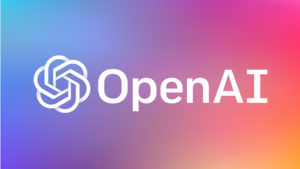OpenAI Launches $100M AI Startup Fund to Propel New Ideas in AI

OpenAI, the research company behind the GPT-3 natural language generator, has unveiled a $100 million AI startup fund that will provide investment money to startups that are driving intriguing AI technologies.
The fund, which was announced May 26 (Wednesday) at the Microsoft Build virtual developers conference, includes investment money from Microsoft, which already has a deep relationship with OpenAI, and from other partners, the company said in a statement.
The $100 million fund is slated to help a small number of early-stage startups in fields where artificial intelligence can have a transformative effect, including healthcare, climate change, education and in areas where AI tools can empower people by helping them be more productive using personal assistants and semantic search, the company said.
In a brief video on OpenAI’s website, Sam Altman, the company’s CEO and co-founder, said OpenAI will be “investing in startups with big ideas about how to use AI to transform the world.”
The plan is for the fund to not mimic the typical corporate venture fund, said Altman. Instead, it will move to make big early bets on a relatively small number of companies, probably not more than 10, he said.
 “We think that helping people be more productive with new tools is a big deal,” said Altman. “And we can imagine brand new interfaces that weren't possible a year ago. These aren't the only applications we'll consider but they're at the top of our target list.”
“We think that helping people be more productive with new tools is a big deal,” said Altman. “And we can imagine brand new interfaces that weren't possible a year ago. These aren't the only applications we'll consider but they're at the top of our target list.”
The fund will be particularly interested in hearing from startups led by founders from under-represented groups, said Altman. “We hope to treat fun companies as close partners and work alongside the founders here. They will get early access to future OpenAI systems, discounts on Azure and support from our team. We are really excited about the opportunity for startups, for the industry and for people everywhere who can put AI to work improving their lives.”
Rob Enderle, principal analyst with Enderle Group, told EnterpriseAI that the OpenAI investment fund is a good start to drive new innovations in the field.
“AI will be one of the most definitive company differentiators over the foreseeable future,” said Enderle. “Gaining competitive advantage on the technology isn’t just important to companies. It is also important to nations as the next superpower will likely be more defined by the successful comprehensive use of AI.”
And even more than the benefits of the money, the startups selected for participation in the funding will gain the help of OpenAI and its partners, said Enderle.
“I expect it will be the experience the organization can help provide over the money that will make this effort successful,” he said. “Startups need money but often they need access to qualified talent and advice more as they build their companies.”
Alex Norton, the principal technology analyst and data analysis manager for HPC and emerging technologies with Hyperion Research, said that though the $100 million in startup funding is not enough money to change the game in a big way, that it is enough to help companies bring new products to fruition.
“I think one of the key aspects of how they are pitching it is ‘early-stage’ rather than established [startups],” said Norton. “It’s exciting to see companies providing money and resources to early-stage startups. I think the Microsoft play is interesting. They not only bring money to the table, but also resources and expertise. It will be interesting to see how the relationship between some of these startups and Microsoft plays out.”
Another interesting thing to watch for, he said, will be Microsoft’s involvement in the process.
“Whoever at Microsoft is on the selection committee for these ten companies will have influence on the potential success and failure of different AI technologies, which in turn can impact the roadmap of AI technology development,” said Norton.
OpenAI has had a growing relationship with Microsoft since 2019, when they partnered to develop and expand new joint Azure AI supercomputing capabilities. And in July of 2019 Microsoft invested $1 billion in OpenAI to support the company's AI work, giving it a huge boost.
In 2020, the companies collaborated on building an AI supercomputer that was hosted in Azure to train OpenAI’s models. Finally, in September of 2020 Microsoft exclusively licensed GPT-3 from OpenAI, covering the use of GPT-3 for all Microsoft products and services. Earlier this week Microsoft announced the first such integration of GPT-3 into one of its products, its Microsoft Power Apps software, which aims to make it easier for enterprise workers to build no-code and low-code applications.
OpenAI’s GPT-3 is a massive natural language model that runs exclusively on Microsoft Azure. GPT-3, which stands for Generative Pre-trained Transformer 3, is an autoregressive language model with 175 billion parameters, which OpenAI claims is ten times more than any previous non-sparse language model.
The OpenAI startup fund news is not the only interesting AI funding announcement recently. LG AI Research is investing $89 million into what it calls a new “super-giant AI” project, which is envisioned as a large-scale computing infrastructure that resembles a human brain structure, according to the company. Paired with $180 million that LG used in December of 2020 to launch the fledgling LG AI Research division, the company has now invested about $270 million in its AI strategy.












